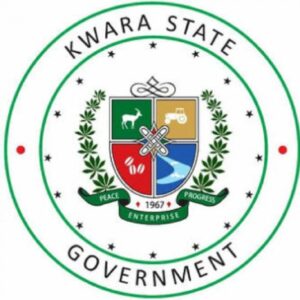


We are aware of Lassa Fever outbreak in Kaduna State – NCDC boss
Dr Jide Idris, Director General of the Nigeria Centre for Disease Control and Prevention (NCDC), has officially acknowledged the outbreak of Lassa fever in Kaduna State.
Speaking to newsmen on Friday in Abuja, Idris confirmed that the NCDC was closely monitoring the situation and working in collaboration with state health authorities to contain the spread of the disease.
The News Agency of Nigeria (NCDC) reports that Lassa fever is an acute viral hemorrhagic (excessive bleeding) illness that is transmitted to humans through contact with food or household items contaminated by infected rodents or contaminated persons.
Its symptoms include fever, headache, sore throat, general body weakness, cough, nausea, vomiting, diarrhoea, muscle pains, chest pain, and in severe cases, unexplainable bleeding from ears, eyes, nose, mouth, and other body openings.
Idris said “the NCDC was notified yesterday by the Kaduna State Ministry of Health of the report of deaths from suspected viral hemorrhagic fever at the 44 Nigerian Army Reference Hospital in Kaduna.
“Following this notification, the centre has been working with both institutions to conduct comprehensive investigation of the suspected cases, as well as ramp up response activities.
“Four of the six blood samples from suspected cases sent to the Bayero University Teaching Hospital in Kano have been confirmed for Lassa fever. Furthermore, twenty-five close contacts of all these cases are now under follow-up and placed on prophylactic medicine.
“The state’s Ministry of Health has also activated the Incident Management System with all the response pillars including intensified risk communication and community engagement for the prevention and control of Lassa fever in the affected communities.”
According to him, the NCDC has dispatched rapid response teams to the affected areas in Kaduna State to conduct epidemiological investigations and implement necessary control measures.
He emphasised the importance of early detection, prompt treatment, and community engagement in curbing the spread of the disease.
“Lassa fever is a viral hemorrhagic fever caused by the Lassa virus, which is transmitted to humans through contact with food or household items contaminated with rodent urine or faeces.
“The disease is endemic in Nigeria, with sporadic outbreaks occurring primarily during the dry season,” he said.
He urged healthcare workers and the public to maintain strict hygiene practices, including proper food storage and disposal of waste, to reduce the risk of Lassa fever transmission.
He also advised individuals experiencing symptoms such as fever, headache, sore throat, and muscle aches to seek medical attention immediately, as early diagnosis and treatment can significantly improve outcomes.
The NCDC DG reassured the public that the agency was committed to containing the outbreak and protecting the health of Nigerians.
He urged citizens to remain vigilant and report any suspected cases to the nearest health facility or state health authorities for prompt response.
“As the situation develops, the NCDC will continue to provide updates and guidance to the public to ensure effective control and prevention of Lassa fever in Kaduna State and across Nigeria,” he said.
According to him, as of Feb. 18, 2024 (end of week 7), 84 local government areas in 23 states of the country have reported a total of 2,621 suspected cases, 476 confirmed, and 84 deaths with a case fatality rate of 18.6 per cent.
“Our condolences go to the families and friends of those (including the health workers) who lost their lives to this disease across the country,” he said.
He added that the agency, through the recently activated multi-sectoral multi-disciplinary Incident Management System has taken the following actions:
“Distribution of medical supplies for case management, infection prevention and control, laboratory diagnosis, in all Lassa fever treatment centres in the country.
“capacity building exercises of some healthcare workers across all the geopolitical zones on Lassa fever preparedness, readiness, and response through the pilot Lassa fever clinical management fellowship.
“Distribution of Lassa fever social and behaviour change communication (SBC) materials to all the 36 states and FCT,” he explained.
He called for a holistic approach to addressing public health challenges in the country, saying “we will be introducing a significant perspective on tackling complex public health issues in the country.”



